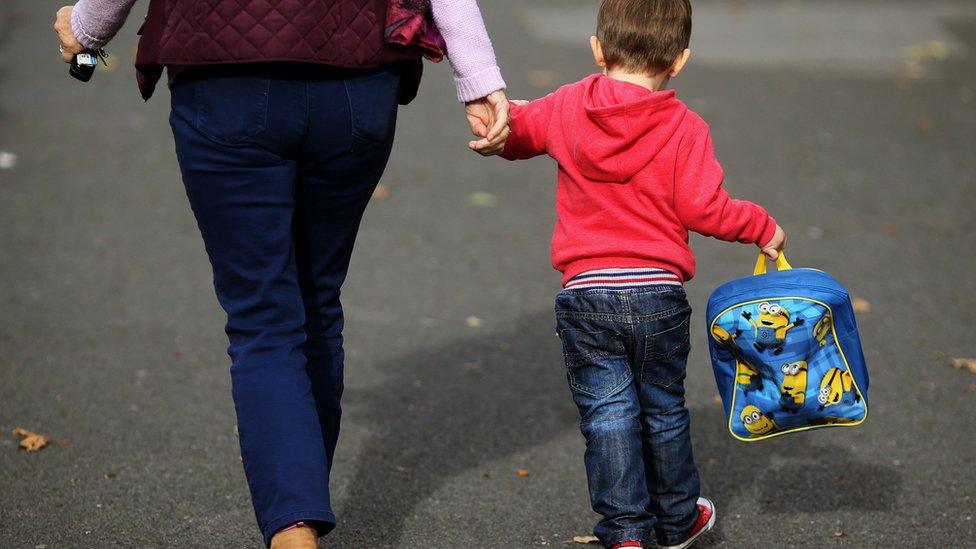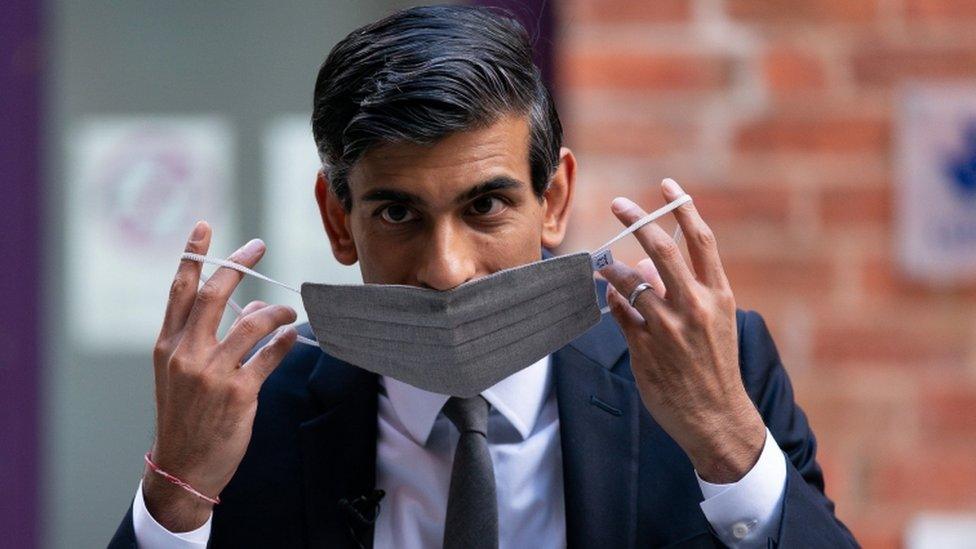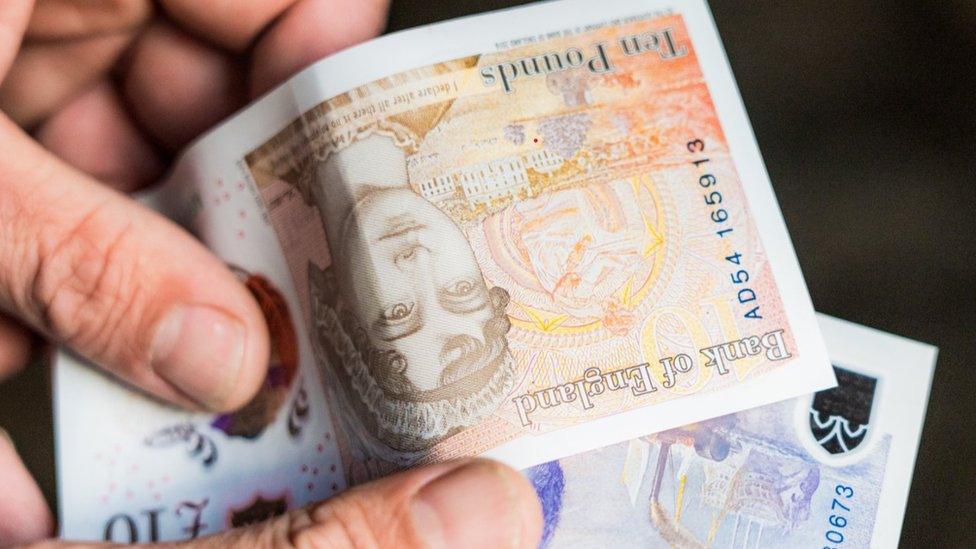UK parliaments back continued universal credit boost
- Published
- comments

The £20 a week increase in Universal Credit should be permanent, according to senior politicians from across the UK.
In a letter, the chairs of four welfare committees from around the UK say removing the temporary top-up would affect families on the lowest incomes.
And sources have also told the BBC that Work and Pensions Secretary Therese Coffey supported keeping the uplift.
The government insists the extra £20 is a short-term measure ending in October.
The letter calling for the top-up to be made permanent was signed by the chairs of committees at Westminster, the Scottish Parliament, Senedd in Wales and Northern Ireland Assembly.
The joint letter from the four committee chairs of the UK's four parliaments is thought to be a first.
It is signed by Labour's Stephen Timms at Westminster, the SNP's Neil Gray for Holyrood, Paula Bradley of the DUP for Stormont and Welsh Labour's Jenny Rathbone at the Senedd in Cardiff.
They say: "Ending the uplift would mean that the six million people claiming Universal Credit will lose £1,040 in annual income overnight.
"The Joseph Rowntree Foundation has estimated that removing the uplift would force 500,000 people, including 200,000 children, into poverty.
"Families on the lowest incomes, those with children and particularly single parents, BAME families, and families where someone is disabled are disproportionately affected."
They also call for the extra £20 a week to be extended to people on legacy benefits - which were created before universal credit.
They warn the chancellor and Ms Coffey: "You also risk removing this support from families at the very time unemployment is expected to peak, as the Coronavirus Job Retention Scheme comes to an end."
Extending the uplift would cost around £6bn a year - but the government says spending has to be brought under control after unprecedented emergency interventions during the pandemic.
Ministers have said the decision to end the additional payment was supported across the government - but several sources have told the BBC that Ms Coffey wanted to maintain it.
Sources said the chancellor resisted that and those close to Rishi Sunak say it was a collective agreement.
But Prime Minister Boris Johnson could face a backbench rebellion, with a number of Tory MPs among those concerned about the impact of removing the uplift.
They include former work and pensions secretaries and a number of MPs representing constituencies in the north of England.
They expect more pressure to be put on the government in September.
A government spokesperson said: "Universal Credit has provided a vital safety net for six million people during the pandemic, and we announced the temporary uplift as part of a £400bn package of measures put in place that will last well beyond the end of the roadmap.
"Our focus now is on our multi-billion pound Plan for Jobs, which will support people in the long-term by helping them learn new skills and increase their hours or find new work."
Related topics
- Published13 May 2024

- Published8 July 2021

- Published13 May 2021
